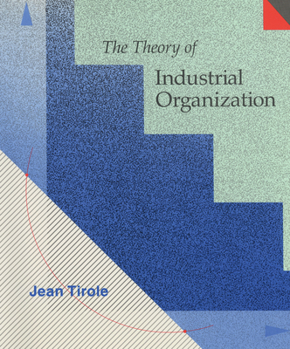The Theory of Industrial Organization
Select Format
Select Condition 
Book Overview
In Part I he develops the modern theory of monopoly, addressing single product and multi product pricing, static and intertemporal price discrimination, quality choice, reputation, and vertical restraints. In Part II, Tirole takes up strategic interaction between firms, starting with a novel treatment of the Bertrand-Cournot interdependent pricing problem. He studies how capacity constraints, repeated interaction, product positioning, advertising, and asymmetric information affect competition or tacit collusion. He then develops topics having to do with long term competition, including barriers to entry, contestability, exit, and research and development. He concludes with a "game theory user's manual" and a section of review exercises.
Important Notice: The digital edition of this book is missing some of the images found in the physical edition.





